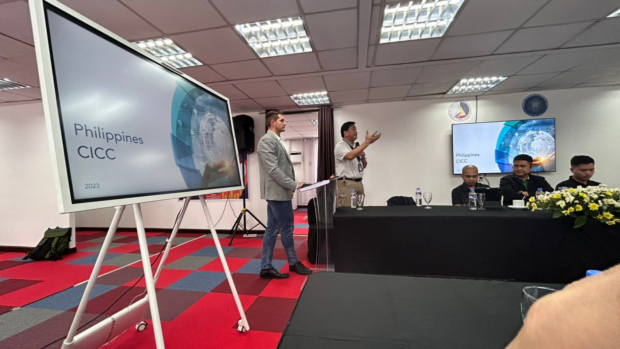The Philippines’ Cybersecurity Measures and Latest Online Scams
The Philippines is currently facing a surge in cybersecurity threats, with online government platforms being targeted by hackers. Additionally, Filipinos are increasingly falling victim to online scams and schemes aimed at deceiving them into giving away their hard-earned money. Thankfully, authorities have taken action by deploying the latest tools and conducting training sessions to combat these digital threats. The government is dedicated to protecting its people from online threats both domestically and globally. However, it is important to recognize that no country can fully defend itself against cyber attacks without the help of its citizens. Individuals must take responsibility for educating themselves about the latest threats and scams, and actively work to avoid falling victim to them. By doing so, they can assist the authorities in their efforts to mitigate technological threats.
In this article, we will discuss the cybersecurity measures implemented in the Philippines. Later on, we will explore the most recent cybercrimes in order to provide you with the knowledge to avoid falling prey to these schemes.
What are the Philippines’ cybersecurity programs?

With the aim of strengthening its anti-cybercrime capabilities, the Philippines initiated a joint training exercise involving the Cybercrime Investigation and Coordinating Center (CICC) and various law enforcement agencies. More than 70 members from agencies such as the Armed Forces of the Philippines, Philippine National Police – National Capital Region Police Office, Bureau of Customs, Bureau of Immigration, and more participated in this exercise. The training, hosted by global security company TRG, took place over three days at the National Cybercrime Hub in Taguig City. It focused on open-source intelligence (OSINT) and national intelligence mapping platforms. Alexander K. Ramos, Executive Director of CICC, expressed his belief that this inter-agency training session would enhance the capabilities of law enforcement groups in the Philippines. He emphasized the importance of increasing skill levels and utilizing artificial intelligence to effectively address the evolving and emerging cyber threats. Ramos also highlighted the need for government agencies to engage in hands-on exercises related to target location, data analysis, and case management, as this collaborative initiative seeks to strengthen each agency’s investigative capacity and ensure a coordinated response to cyber threats.
You may also like: Filipinos must be wary of online scams
The cybersecurity initiatives in the Philippines extend to government platforms as well. To this end, the Department of Information and Communications Technology launched the Consumer Application Monitoring Systems (CAMS). DICT Secretary Ivan John Uy described this as a useful tool for assessing the performance and identifying the issues with government applications. CAMS is equipped with AI-powered vision, enabling it to detect errors and automate event detection. It also utilizes robots for multi-stage user journey automation and can access apps without human intervention. Furthermore, CAMS autonomous kits allow the platform to gather location-based data, thereby highlighting areas that may require additional assistance.
What are the most common online scams?
Even the most technologically advanced countries cannot provide foolproof protection against online attacks. Therefore, it is crucial for individuals to familiarize themselves with the signs of scams and learn how to avoid falling victim to them. One prevalent type of online scam involves business or investment opportunities. Scammers may promise financial freedom by persuading individuals to invest their money in a fund that offers high returns through interest. However, victims are often unable to withdraw their funds until they provide more money. In addition, scammers may create counterfeit versions of popular websites to deceive individuals into sharing their personal data and money. Online scams can also involve downloading malicious apps that allow scammers to gain remote access to a victim’s phone. Another tactic is impersonating friends or family members and requesting money in digital currency, a method that has become more prevalent with the rise of online wallets and artificial intelligence tools.
Conclusion
The Philippines has been increasingly focused on enhancing its cybersecurity measures to combat the growing threats it faces. With government platforms being targeted by hackers and online scams on the rise, it is crucial to take action to protect individuals and organizations. Authorities have launched training programs for law enforcement agencies, with the hope of preventing evolving online attacks. Moreover, the country’s digitalization efforts are in full swing, as tech firms collaborate to build a robust digital infrastructure. To learn more about these projects and stay updated, visit Inquirer Tech.
Denial of responsibility! Vigour Times is an automatic aggregator of Global media. In each content, the hyperlink to the primary source is specified. All trademarks belong to their rightful owners, and all materials to their authors. For any complaint, please reach us at – [email protected]. We will take necessary action within 24 hours.


